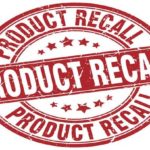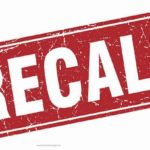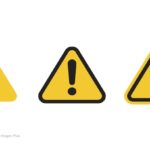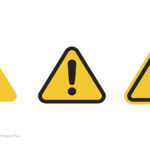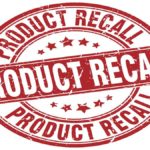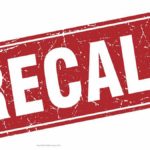Food recalls are handled by the FDA and USDA. They tell consumers about problems or issues with the food they regulate. Recalls can range from a processing error or mislabeling to undeclared allergens and pathogen contamination. It's important that everyone be aware of these recalls and stay up to date. But what should you do with a recalled food product? It depends on the reason for the recall. If the recalled food product is recalled for something that isn't going to affect health, it's your choice whether or not to discard it. If the recall is for an undeclared allergen, it doesn't affect you or your family unless a person in your family is allergic to that ingredient; throw it away if this is the case. But if the recall is for a pathogen, you should follow these steps. Any … [Read more...]
What Is Happening to FDA and USDA Food Recalls?
If you have been a longtime reader of Food Poisoning Bulletin, you may have noticed that food recalls have decreased substantially in the past few months. The USDA has issued three recalls since January 24, 2020: One was issued on February 8, 2020, and two were issued on April 10, 2020. The FDA has had more recalls, with seven in the month of April 2020 (including three recalls for enoki mushrooms as part of a Listeria Monocytogenes outbreak), but that is far below normal. What is happening to FDA and USDA food recalls? Food Poisoning Bulletin contacted the USDA about this. issue. This was their response: "To answer your question about recalls for products under FSIS’ regulatory jurisdiction, a recall is a firm’s voluntary removal of distributed meat, poultry, or egg products from … [Read more...]
Supermarkets Are Failing To Post Food Recalls, Says U.S. PIRG
A new report by the U.S. PIRG (public interest research groups) has found that most supermarkets are failing to post food recalls and don't make it easy for consumers to find out about recalled products. The report is titled, "Food Recall Failure: Will your supermarket warn you about hazardous food?" It gave a failing grade to 84% of the nation's 26 largest supermarket chains. Some of the chains that received a failing grade include Aldi, Publix, Whole Foods, Safeway, Albertsons, HEB, Meijer, Stop & Shop, Trader Joe's, Food Lion, and Walmart. Those supermarkets are failing to post food recalls. U.S. PIRG Education Fund Consumer Watchdog Adam Garber said in a statement, "Supermarkets should be our best recall notification system, but instead, we found that shoppers must go on … [Read more...]
U.S. PIRG Says Meat Recalls Remain High, Other Recalls Drop
A report from U.S. PIRG, the Federation of State PIRGs (Public Interest Research Group), says that meat recalls remained high in the United States last year, while recalls for processed foods and produce dropped. This information was published in How Safe Is Our Food? which details over food recall trends for last year. That report includes information on case studies for the 2018 romaine lettuce outbreak, the Foster Farms poultry recall in 2013 - 2014, and the JBS Beef recall in 2018. Adam Garber, U.S. PIRG Consumer Watchdog said in a statement, "“Consumers shouldn't have to worry that their next bite might sicken or kill them, especially when food safety agencies leave so many solutions in the pantry. Our analysis suggests that when commonsense protections are implemented, our … [Read more...]
Stericycle: Recalls Declined in First Quarter 2019; Shutdown to Blame?
According to Stericycle Expert Solutions, which releases a summary of recall trends every quarter, recalls of food, pharmaceutical, and consumer products declined "significantly" for the first time since 2012 in the first quarter of 2019. The press release states that "The declines were largely due to reduced oversight from the government shutdown earlier this year which stopped or limited many government safety inspections for food, pharmaceutical, automotive, medical device, and consumer products, the industries tracked in the Stericycle Recall Index. When the shutdown ended at the end of January, it took several more weeks for the regulatory agencies to ramp safety inspections back up to normal levels." The shutdown lasted for 5 weeks from December 2018 to January 2019. FDA … [Read more...]
FDA Strengthening Process For Initiating Voluntary Recalls
The Food and Drug Administration (FDA) is strengthening the process of initiating voluntary recalls. These recalls remove food from the marketplace that may be contaminated with pathogens or contain undeclared allergens. Melinda K. Plaisier, FDA Associate Commissioner for Regulatory Affairs, is commenting on this plan. There were 382 food recalls in 2018, for undeclared allergens, pathogens, and foreign material contamination. The FDA regulates all foods except for some aspects of meat, poultry and egg products. If food needs to be recalled because it is a threat to public health, and the company will not act, the FDA has regulatory power to force a recall. The first mandatory recall order was issued for Kratom products last year. The FDA is guiding companies on the steps … [Read more...]
FDA Strengthens Process For Issuing Recall Warnings
The U.S. Food and Drug Administration (FDA) is taking steps to strengthen the process they use for issuing a public warning about food recalls and notification of recalls. While most companies collaborate with the FDA when a problem, whether it's an undeclared allergen, foreign material in a product, or contamination with a pathogen, the agency sometimes need to provide advice to protect consumers. Dr. Scott Gottlieb, Commissioner of the FDA, says the agency has finalized the mandatory recall guidance for foods. While most companies do cooperate with the government when a problem arises, some cases will not voluntarily issue a recall. FDA was given mandatory recall authority in some cases by the Food Safety Modernization Act of 2011. The agency has used this power just once, when … [Read more...]
U.S. PIRG: Hazardous Meat and Poultry Recalls Nearly Double in 2018
U.S. PIRG, the federation of state PIRGs (public interest research groups), has found that the recalls of potentially hazardous meat and poultry recalls nearly doubled from 2013 to 2018. Their report, How Safe Is Our Food? During that time frame, while there has been a 10% increase in overall recalls, there was a 70% increase in chicken recalls, and an 83% increase in Class 1 meat and poultry recalls, which are those likely to cause serious illness or death. Some of these recalls may be because of better identification of pathogens in food, and new technology such as whole genome sequencing. The U.S. PIRG also says that the Food Safety Modernization Act of 2011 has also increased food recalls. Adam Garber, U.S. PIRG Consumer Watchdog said in a statement, "The food we nourish … [Read more...]
FDA Will Start Listing Retail Distribution Lists For Some Recalled Foods
According to FDA Commissioner Dr. Scott Gottlieb, the FDA is going to disclose retailer distribution information for some types of food recalls. The USDA already provides this information. When a recall is initiated, the FDA works with companies to publicize information such as labeling, product descriptions, lot numbers, and UPC numbers, as well as photographs and some geographic info. Since supply chain information is confidential between the supplier and the retailer, the FDA has not traditionally released lists of stores where these products may have been sold. The agency also believed that, with the information they do release, consumers have enough information to either not purchase recalled foods, or to get rid of these foods when a recall is issued. But there are some … [Read more...]

